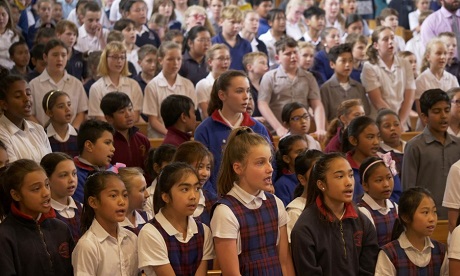An initiative challenging Bishops to support the evangelising mission and ministries in Catholic schools saw religious education leaders learning together last week. Some participated online, others came together in person.
Organised by Catholic Education Auckland in partnership with the Diocese of Hamilton and Te Kupenga Catholic Theological College, the Spiritus Aotearoa NZ 2022 summit responded to the educational challenge for a Catholic learning community.
Brendan Bergin, who teaches at Auckland’s Te Kupenga Catholic Theological College, says the agenda presented ways for religious education leaders – bishops, school principals and directors of religious education (DRS) – to adapt their teaching practice and methods for evangelisation in a post-Covid context.
“Pope Francis urges educators to embrace a new type of education and not close themselves off to ‘new perspectives or bold educational proposals’ but ‘integrate the language of the head with the language of the heart and the language of the hands’.
“These new perspectives are part of the Spiritus Aotearoa NZ 2022 vision.”
Presentations, seminars and small group discussions were mixed with practical workshops on key skills. Topics included the evangelising mission, team discernment leadership, student retreats and weaving Special Character and Religious Education across the curriculum.
All the workshops responded to the new RE curriculum.
Participants also examined Church documents such as the Directory of Catechesis, papal encyclicals and bishops’ documents, along with new expressions and methods of evangelisation that can support school leaders in their evangelising role.
The Spiritus initiative is important, Bergin says.
“In contemporary theologies and Church teachings on evangelisation, schools are considered to be ‘centres of evangelisation’ in a similar way to parishes.
“This is significant when we look at the opportunities provided by schools to support young people to build a relationship with Jesus and to ‘encounter’ Christ.
“It’s also significant in the context of secularisation, the post-Covid reality of young people with pronounced mental health issues in our schools and the call to synodality…or evangelisation in the context of a synodal Church.”
While everyone who witnesses to the message of the Gospels or models the actions and teachings of Jesus should evangelise others, the responsibility is different in schools, says Bergin.
“In an educational sense it is parish ministers (lay and ordained), youth ministers, school chaplains, principals, DRS, Catholic teachers … all teachers in a Catholic school who are responsible for its Catholic character.”
Spiritus participants were positive about the initiative.
“May we not be afraid of leading and engaging in evangelisation, but also not be afraid to ‘turn the pyramid upside down’ and learn from others, accepting and respecting the diversity of gifts, while searching for the unity of all,” said one.
“It refocuses me and the school to re-look at our role as we continue the mission of Jesus – now is the right time for evangelisation.’” said another.
Bergin says those who couldn’t attend may have missed an important opportunity to reflect on a new vision and methods for evangelisation in contemporary Catholic educational settings.
Source
- Supplied
